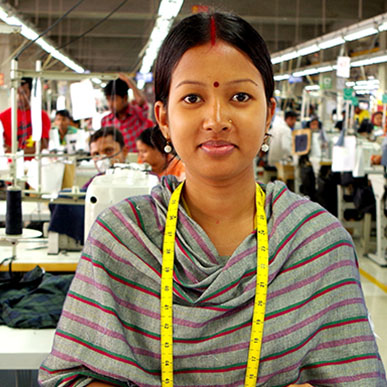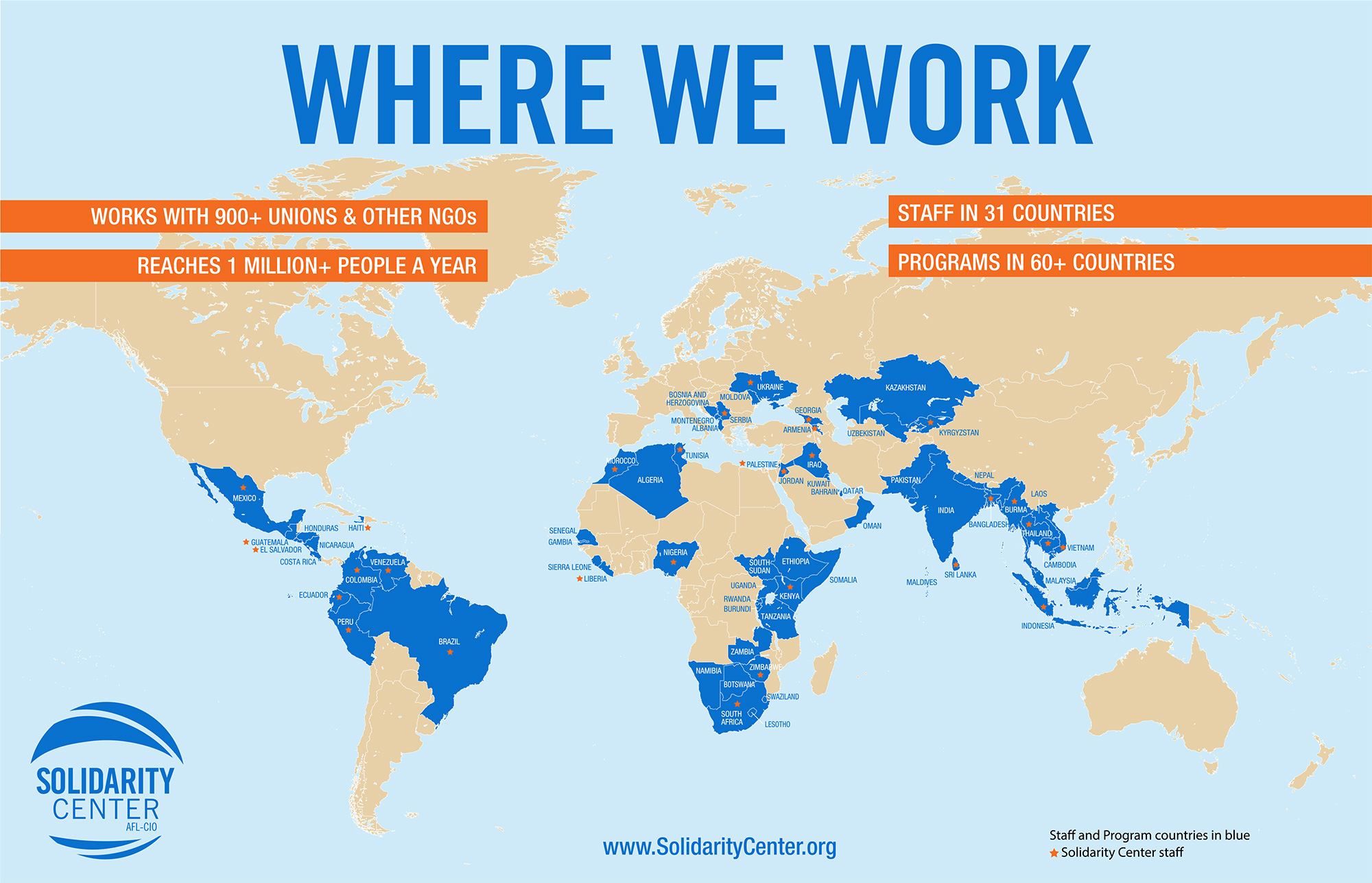UKRAINE WORKERS: WARTIME DIARIES
WHY WE’RE DIFFERENT
We are the largest U.S.-based international worker rights organization partnering directly with workers and their unions, and supporting their struggle for respect, fair wages, better workplaces and a voice in the global economy.
We value the dignity of work and workers. We know how all the work everyone depends on gets done–who picks the food for your table, cleans your home so you can go to the office, makes your clothes, keeps your streets clean. And at our core is every worker’s right to solve issues through collective action and to form unions.
What’s New

More Attacks on Rights of Ukrainian Workers
Read More

Haiti Garment Workers Win Key Benefits
Read More

Podcast: In Midst of War, Ukrainian Parliament Attacks Worker Rights
Read More

The Solidarity Center Podcast

BILLIONS OF US, ONE JUST FUTURE
CONVERSATIONS WITH WORKERS (& OTHER SMART PEOPLE) WORLDWIDE SHAPING THE WORKPLACE FOR THE BETTER
Hosted by Solidarity Center Executive Director Shawna Bader-Blau
Subscribe: Amazon | Apple Podcasts | RSS | Spotify | Stitcher
No Results Found
The page you requested could not be found. Try refining your search, or use the navigation above to locate the post.
Our work
Programs in
Countries
Reaching
People
Works with
Unions & other Ngos

Reaching 1 Million+ People Worldwide
Solidarity Center in the News
Swaziland: Police Attack Another Union Meeting
“In June 2014 the U.S. government took the rare step of suspending African Growth and Opportunity Act (AGOA) trade benefits for Swaziland, citing the Swazi government’s systematic violations of fundamental worker rights, including refusal to legally recognize TUCOSWA,” reported the Solidarity Center.
U.S. Senate Looks at Way to Address ‘Modern Slavery’
Shawna Bader-Blau, executive director of the Solidarity Center, testified at the Senate Foreign Relations Committee hearing. She said the United States has a real opportunity to lead the fight against worker exploitation, especially with regard to upcoming negotiations on the proposed Trans-Pacific Partnership trade agreement. “Our diplomacy must be much more robust and aggressive on tackling the root causes” of forced labor, Bader-Blau told the committee, stating her belief that “it’s not too much to ask that we see real systematic changes” in how countries operate before agreeing to anything in trade negotiations.
No World Bank Probe of Labor Abuses in Uzbekistan
Uzbekistan continued using forced labor, including children, for the country’s recent cotton harvest, according to a recent report by the Uzbek-German Forum, notes the Solidarity Center, a member of the Cotton Campaign.
Follow Us On Twitter
Mark your calendar
Test 12-1-22
Read More
Women Workers’ Voices and Participation on the COVID-19 Recovery Front Lines
Read More
